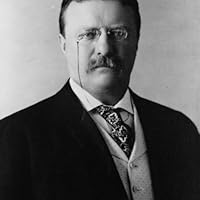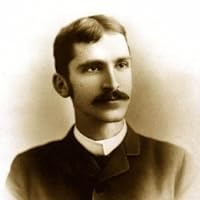Big Business Quotes
Quotes tagged as "big-business"
Showing 1-27 of 27

“A man who has never gone to school may steal a freight car; but if he has a university education, he may steal the whole railroad.”
―
―

“I live in the Managerial Age, in a world of "Admin." The greatest evil is not now done in those sordid "dens of crime" that Dickens loved to paint. It is not done even in concentration camps and labour camps. In those we see its final result. But it is conceived and ordered (moved, seconded, carried, and minuted) in clean, carpeted, warmed and well-lighted offices, by quiet men with white collars and cut fingernails and smooth-shaven cheeks who do not need to raise their voices. Hence, naturally enough, my symbol for Hell is something like the bureaucracy of a police state or the office of a thoroughly nasty business concern."
[From the Preface]”
― The Screwtape Letters
[From the Preface]”
― The Screwtape Letters
“Our current monetary system is the reason why our planet is swimming in cheap, low-quality products, because businesses want to spend the least amount of money to create a product, which makes it low-quality, and businesses also make products that don’t last on purpose so they can make more money when the customer has to buy the same product again, and sometimes rebought an absurd amount of times. If money was taken out of the equation, only the people whose passion to make certain products would be making them, and they’d be the people who’d make the best products since it would be done out of passion instead of the want for money.”
― The Beasts of Success
― The Beasts of Success

“Our aim is not to do away with corporations; on the contrary, these big aggregations are an inevitable development of modern industrialism, and the effort to destroy them would be futile unless accomplished in ways that would work the utmost mischief to the entire body politic. We can do nothing of good in the way of regulating and supervising these corporations until we fix clearly in our minds that we are not attacking the corporations, but endeavoring to do away with any evil in them. We are not hostile to them; we are merely determined that they shall be so handled as to subserve the public good. We draw the line against misconduct, not against wealth.”
―
―

“Still another danger is represented by those who, paying lip service to democracy and the common welfare, in their insatiable greed for money and the power which money gives, do not hesitate surreptitiously to evade the laws designed to safeguard the public from monopolistic extortion.
Their final objective toward which all their deceit is directed is to capture political power so that, using the power of the state and the power of the market simultaneously, they may keep the common man in eternal subjection.
They claim to be super-patriots, but they would destroy every liberty guaranteed by the Constitution.
They are patriotic in time of war because it is to their interest to be so, but in time of peace they follow power and the dollar wherever they may lead.”
―
Their final objective toward which all their deceit is directed is to capture political power so that, using the power of the state and the power of the market simultaneously, they may keep the common man in eternal subjection.
They claim to be super-patriots, but they would destroy every liberty guaranteed by the Constitution.
They are patriotic in time of war because it is to their interest to be so, but in time of peace they follow power and the dollar wherever they may lead.”
―
“Pick a leader who will keep jobs in your country by offering companies incentives to hire only within their borders, not one who allows corporations to outsource jobs for cheaper labor when there is a national employment crisis. Choose a leader who will invest in building bridges, not walls. Books, not weapons. Morality, not corruption. Intellectualism and wisdom, not ignorance. Stability, not fear and terror. Peace, not chaos. Love, not hate. Convergence, not segregation. Tolerance, not discrimination. Fairness, not hypocrisy. Substance, not superficiality. Character, not immaturity. Transparency, not secrecy. Justice, not lawlessness. Environmental improvement and preservation, not destruction. Truth, not lies.”
― Rise Up and Salute the Sun: The Writings of Suzy Kassem
― Rise Up and Salute the Sun: The Writings of Suzy Kassem
“Pick a leader who will make their citizens proud. One who will stir the hearts of the people, so that the sons and daughters of a given nation strive to emulate their leader's greatness. Only then will a nation be truly great, when a leader inspires and produces citizens worthy of becoming future leaders, honorable decision makers and peacemakers. And in these times, a great leader must be extremely brave. Their leadership must be steered only by their conscience, not a bribe.”
― Rise Up and Salute the Sun: The Writings of Suzy Kassem
― Rise Up and Salute the Sun: The Writings of Suzy Kassem
“Pick a leader who will not only bail out banks and airlines, but also families from losing their homes -- or jobs due to their companies moving to other countries. Pick a leader who will fund schools, not limit spending on education and allow libraries to close. Pick a leader who chooses diplomacy over war. An honest broker in foreign relations. A leader with integrity, one who says what they mean, keeps their word and does not lie to their people. Pick a leader who is strong and confident, yet humble. Intelligent, but not sly. A leader who encourages diversity, not racism. One who understands the needs of the farmer, the teacher, the doctor, and the environmentalist -- not only the banker, the oil tycoon, the weapons developer, or the insurance and pharmaceutical lobbyist.”
― Rise Up and Salute the Sun: The Writings of Suzy Kassem
― Rise Up and Salute the Sun: The Writings of Suzy Kassem

“Both political parties have moved to the right during the neoliberal period. Today’s New Democrats are pretty much what used to be called “moderate Republicans.” The “political revolution” that Bernie Sanders called for, rightly, would not have greatly surprised Dwight Eisenhower.
The fate of the minimum wage illustrates what has been happening. Through the periods of high and egalitarian growth in the ‘50s and ‘60s, the minimum wage—which sets a floor for other wages—tracked productivity. That ended with the onset of neoliberal doctrine. Since then, the minimum wage has stagnated (in real value). Had it continued as before, it would probably be close to $20 per hour. Today, it is considered a political revolution to raise it to $15.”
―
The fate of the minimum wage illustrates what has been happening. Through the periods of high and egalitarian growth in the ‘50s and ‘60s, the minimum wage—which sets a floor for other wages—tracked productivity. That ended with the onset of neoliberal doctrine. Since then, the minimum wage has stagnated (in real value). Had it continued as before, it would probably be close to $20 per hour. Today, it is considered a political revolution to raise it to $15.”
―

“As long as politics is the shadow of big business, the attenuation of the shadow will not change the substance.”
―
―
“Shame on the misguided, the blinded, the distracted and the divided. Shame. You have allowed deceptive men to corrupt and desensitize your hearts and minds to unethically fuel their greed.”
― Rise Up and Salute the Sun: The Writings of Suzy Kassem
― Rise Up and Salute the Sun: The Writings of Suzy Kassem
“I spent 33 years and 4 months in active military service . . . And during that period I spent most of my time as a high-class muscle man for Big Business, for Wall Street and the bankers. In short, I was a racketeer, a gangster for capitalism.
Thus, I helped make Mexico and especially Tampico safe for American oil interests in 1914. I helped make Haiti and Cuba a decent place for the National City Bank boys to collect revenues in. I helped in the raping of half a dozen Central American republics for the benefit of Wall Street.
I helped purify Nicaragua for the international banking house of Brown Brothers in 1902–1912. I brought light to the Dominican Republic for American sugar interests in 1916. I helped make Honduras right for American fruit companies in 1903. In China in 1927, I helped see to it that Standard Oil went on its way unmolested.
Our boys were sent off to die with beautiful ideals painted in front of them. No one told them that dollars and cents were the real reason they were marching off to kill and die.”
―
Thus, I helped make Mexico and especially Tampico safe for American oil interests in 1914. I helped make Haiti and Cuba a decent place for the National City Bank boys to collect revenues in. I helped in the raping of half a dozen Central American republics for the benefit of Wall Street.
I helped purify Nicaragua for the international banking house of Brown Brothers in 1902–1912. I brought light to the Dominican Republic for American sugar interests in 1916. I helped make Honduras right for American fruit companies in 1903. In China in 1927, I helped see to it that Standard Oil went on its way unmolested.
Our boys were sent off to die with beautiful ideals painted in front of them. No one told them that dollars and cents were the real reason they were marching off to kill and die.”
―

“One of the many signs of verbal virtuosity among intellectuals is the repackaging of words to mean things that are not only different from, but sometimes the direct opposite of, their original meanings. 'Freedom' and 'power' are among the most common of these repackaged words. The basic concept of freedom as not being subjected to other people's restrictions, and of power as the ability to restrict other people's options have both been stood on their heads in some of the repackaging of these words by intellectuals discussing economic issues. Thus business enterprises who expand the public's options, either quantitatively (through lower prices) or qualitatively (through better products) are often spoken of as 'controlling' the market, whenever this results in a high percentage of consumers choosing to purchase their particular products rather than the competing products of other enterprises.
In other words, when consumers decide that particular brands of products are either cheaper or better than competing brands of those products, third parties take it upon themselves to depict those who produced these particular brands as having exercised 'power' or 'control.' If, at a given time, three-quarters of the consumers prefer to buy the Acme brand of widgets to any other brand, then Acme Inc. will be said to 'control' three-quarters of the market, even though consumers control 100 percent of the market, since they can switch to another brand of widgets tomorrow if someone else comes up with a better widget, or stop buying widgets altogether if a new product comes along that makes widgets obsolete.
....by saying that businesses have 'power' because they have 'control' of their markets, this verbal virtuosity opens the way to saying that government needs to exercise its 'countervailing power' (John Kenneth Galbraith's phrase) in order to protect the public. Despite the verbal parallels, government power is in fact power, since individuals do not have a free choice as to whether or not to obey government laws and regulations, while consumers are free to ignore the products marketed by even the biggest and supposedly most 'powerful' corporations in the world.”
― Intellectuals and Society
In other words, when consumers decide that particular brands of products are either cheaper or better than competing brands of those products, third parties take it upon themselves to depict those who produced these particular brands as having exercised 'power' or 'control.' If, at a given time, three-quarters of the consumers prefer to buy the Acme brand of widgets to any other brand, then Acme Inc. will be said to 'control' three-quarters of the market, even though consumers control 100 percent of the market, since they can switch to another brand of widgets tomorrow if someone else comes up with a better widget, or stop buying widgets altogether if a new product comes along that makes widgets obsolete.
....by saying that businesses have 'power' because they have 'control' of their markets, this verbal virtuosity opens the way to saying that government needs to exercise its 'countervailing power' (John Kenneth Galbraith's phrase) in order to protect the public. Despite the verbal parallels, government power is in fact power, since individuals do not have a free choice as to whether or not to obey government laws and regulations, while consumers are free to ignore the products marketed by even the biggest and supposedly most 'powerful' corporations in the world.”
― Intellectuals and Society

“I use “anticapitalist” because conservative defenders of capitalism regularly say their liberal and socialist opponents are against capitalism. They say efforts to provide a safety net for all people are “anticapitalist.” They say attempts to prevent monopolies are “anticapitalist.” They say efforts that strengthen weak unions and weaken exploitative owners are “anticapitalist.” They say plans to normalize worker ownership and regulations protecting consumers, workers, and environments from big business are “anticapitalist.” They say laws taxing the richest more than the middle class, redistributing pilfered wealth, and guaranteeing basic incomes are “anticapitalist.” They say wars to end poverty are “anticapitalist.” They say campaigns to remove the profit motive from essential life sectors like education, healthcare, utilities, mass media, and incarceration are “anticapitalist.”
In doing so, these conservative defenders are defining capitalism. They define capitalism as the freedom to exploit people into economic ruin; the freedom to assassinate unions; the freedom to prey on unprotected consumers, workers, and environments; the freedom to value quarterly profits over climate change; the freedom to undermine small businesses and cushion corporations; the freedom from competition; the freedom not to pay taxes; the freedom to heave the tax burden onto the middle and lower classes; the freedom to commodify everything and everyone; the freedom to keep poor people poor and middle-income people struggling to stay middle income, and make rich people richer. The history of capitalism—of world warring, classing, slave trading, enslaving, colonizing, depressing wages, and dispossessing land and labor and resources and rights—bears out the conservative definition of capitalism.”
― How to Be an Antiracist
In doing so, these conservative defenders are defining capitalism. They define capitalism as the freedom to exploit people into economic ruin; the freedom to assassinate unions; the freedom to prey on unprotected consumers, workers, and environments; the freedom to value quarterly profits over climate change; the freedom to undermine small businesses and cushion corporations; the freedom from competition; the freedom not to pay taxes; the freedom to heave the tax burden onto the middle and lower classes; the freedom to commodify everything and everyone; the freedom to keep poor people poor and middle-income people struggling to stay middle income, and make rich people richer. The history of capitalism—of world warring, classing, slave trading, enslaving, colonizing, depressing wages, and dispossessing land and labor and resources and rights—bears out the conservative definition of capitalism.”
― How to Be an Antiracist

“Corn is what feeds the steer that becomes the steak. Corn feeds the chicken and the pig, the turkey, and the lamb, the catfish and the tilapia and, increasingly, even the salmon, a carnivore by nature that the fish farmers are reengineering to tolerate corn. The eggs are made of corn. The milk and cheese and yogurt, which once came from dairy cows that grazed on grass, now typically comes from Holsteins that spend their working lives indoors tethered to machines, eating corn.
Head over to the processed foods and you find ever more intricate manifestations of corn. A chicken nugget, for example, piles up corn upon corn: what chicken it contains consists of corn, of course, but so do most of a nugget's other constituents, including the modified corn starch that glues the things together, the corn flour in the batter that coats it, and the corn oil in which it gets fried. Much less obviously, the leavenings and lecithin, the mono-, di-, and triglycerides, the attractive gold coloring, and even the citric acid that keeps the nugget "fresh" can all be derived from corn.
To wash down your chicken nuggets with virtually any soft drink in the supermarket is to have some corn with your corn. Since the 1980s virtually all the sodas and most of the fruit drinks sold in the supermarket have been sweetened with high-fructose corn syrup (HFCS) -- after water, corn sweetener is their principal ingredient. Grab a beer for you beverage instead and you'd still be drinking corn, in the form of alcohol fermented from glucose refined from corn. Read the ingredients on the label of any processed food and, provided you know the chemical names it travels under, corn is what you will find. For modified or unmodified starch, for glucose syrup and maltodextrin, for crystalline fructose and ascorbic acid, for lecithin and dextrose, lactic acid and lysine, for maltose and HFCS, for MSG and polyols, for the caramel color and xanthan gum, read: corn. Corn is in the coffee whitener and Cheez Whiz, the frozen yogurt and TV dinner, the canned fruit and ketchup and candies, the soups and snacks and cake mixes, the frosting and candies, the soups and snacks and cake mixes, the frosting and gravy and frozen waffles, the syrups and hot sauces, the mayonnaise and mustard, the hot dogs and the bologna, the margarine and shortening, the salad dressings and the relishes and even the vitamins. (Yes, it's in the Twinkie, too.)
There are some forty-five thousand items in the average American supermarket and more than a quarter of them now contain corn. This goes for the nonfood items as well: Everything from the toothpaste and cosmetics to the disposable diapers, trash bags, cleansers, charcoal briquettes, matches, and batteries, right down to the shine on the cover of the magazine that catches your eye by the checkout: corn. Even in Produce on a day when there's ostensibly no corn for sale, you'll nevertheless find plenty of corn: in the vegetable wax that gives the cucumbers their sheen, in the pesticide responsible for the produce's perfection, even in the coating on the cardboard it was shipped in. Indeed, the supermarket itself -- the wallboard and joint compound, the linoleum and fiberglass and adhesives out of which the building itself has been built -- is in no small measure a manifestation of corn.”
― The Omnivore's Dilemma: A Natural History of Four Meals
Head over to the processed foods and you find ever more intricate manifestations of corn. A chicken nugget, for example, piles up corn upon corn: what chicken it contains consists of corn, of course, but so do most of a nugget's other constituents, including the modified corn starch that glues the things together, the corn flour in the batter that coats it, and the corn oil in which it gets fried. Much less obviously, the leavenings and lecithin, the mono-, di-, and triglycerides, the attractive gold coloring, and even the citric acid that keeps the nugget "fresh" can all be derived from corn.
To wash down your chicken nuggets with virtually any soft drink in the supermarket is to have some corn with your corn. Since the 1980s virtually all the sodas and most of the fruit drinks sold in the supermarket have been sweetened with high-fructose corn syrup (HFCS) -- after water, corn sweetener is their principal ingredient. Grab a beer for you beverage instead and you'd still be drinking corn, in the form of alcohol fermented from glucose refined from corn. Read the ingredients on the label of any processed food and, provided you know the chemical names it travels under, corn is what you will find. For modified or unmodified starch, for glucose syrup and maltodextrin, for crystalline fructose and ascorbic acid, for lecithin and dextrose, lactic acid and lysine, for maltose and HFCS, for MSG and polyols, for the caramel color and xanthan gum, read: corn. Corn is in the coffee whitener and Cheez Whiz, the frozen yogurt and TV dinner, the canned fruit and ketchup and candies, the soups and snacks and cake mixes, the frosting and candies, the soups and snacks and cake mixes, the frosting and gravy and frozen waffles, the syrups and hot sauces, the mayonnaise and mustard, the hot dogs and the bologna, the margarine and shortening, the salad dressings and the relishes and even the vitamins. (Yes, it's in the Twinkie, too.)
There are some forty-five thousand items in the average American supermarket and more than a quarter of them now contain corn. This goes for the nonfood items as well: Everything from the toothpaste and cosmetics to the disposable diapers, trash bags, cleansers, charcoal briquettes, matches, and batteries, right down to the shine on the cover of the magazine that catches your eye by the checkout: corn. Even in Produce on a day when there's ostensibly no corn for sale, you'll nevertheless find plenty of corn: in the vegetable wax that gives the cucumbers their sheen, in the pesticide responsible for the produce's perfection, even in the coating on the cardboard it was shipped in. Indeed, the supermarket itself -- the wallboard and joint compound, the linoleum and fiberglass and adhesives out of which the building itself has been built -- is in no small measure a manifestation of corn.”
― The Omnivore's Dilemma: A Natural History of Four Meals
“Country jakes are always whining about the sanctity of states' rights and individual freedoms. Yet when a couple of queers want to get married in Massachusetts, half the South goes apeshit with homemade posters and fire-breathing sermons. And when a few million concerned residents of states thousands of miles away decide they want to stop destroying their landscape in the name of corporate mammon and consumer stupidity, the South sends out its greasy merchants of avarice to cajole, bribe, hector, lie, intimidate, and "lobby" until the seed of their plantation mentality is protected and their gluttonous mouths are once again filled with the jizz of the master caste before whom they kneel like Bourbon Street whores on Navy payday.”
― Better Off Without 'Em: A Northern Manifesto for Southern Secession
― Better Off Without 'Em: A Northern Manifesto for Southern Secession

“People who own the world outright for profit will have to be stopped by influence, by power, by us.”
―
―

“In actual fact it would seem that during the Cold War, if not during World War II, this country has become frankly a warfare state built on affluence, a power structure in which the interests of big business, the obsessions of the military, and the phobias of political extremists both dominate and dictate our national policy. It also seems that the people of the country are by and large reduced to passivity, confusion, resentment, frustration, thoughtlessness and ignorance, so that they blindly follow any line that is unraveled for them by the mass media.”
― Cold War Letters
― Cold War Letters

“International big business has made revolutions before now to safeguard its interests. At one time it made them … in the name of Liberty, Equality and Fraternity. Now, with Socialism to fight, it makes them in the name of Law and Order and Sound Finance. Assassination? If an assassination is going to be good for business, then there will be an assassination.”
― The Mask of Dimitrios
― The Mask of Dimitrios

“The New Economy is one where small business has the advantage. What is it
about small business that is unique? Today’s small businesses are lean, smart, complex – eternally entrepreneurial – not just small versions of big business. These entrepreneurial models are the survivors in today’s economy.”
― Thriving in the New Economy
about small business that is unique? Today’s small businesses are lean, smart, complex – eternally entrepreneurial – not just small versions of big business. These entrepreneurial models are the survivors in today’s economy.”
― Thriving in the New Economy
“Read the following chain of events and see whether a similar pattern might apply to other toxic products that were reported in the news during your lifetime:
1. Workers were told that the paint was nontoxic, although there was no factual basis for this declaration. The employers discounted scientists. The workers believed their superiors.
2. Health complaints were made in ever-increasing frequency. It became obvious that something was seriously wrong.
3. U.S. Radium and other watch-dial companies began a campaign of disinformation and bogus medical tests - some of which involved X-rays and may even have made the condition worse.
4. Doctors, dentists, and researchers complied with U.S. Radium's and other companies' requests and refused to release their data to the public.
5. Medical professionals also aided the companies by attributing worker deaths to other causes. Syphilis was often cited as the diagnosis, which had the added benefit to management of being a smear on the victims' reputations.
6. One worker, Grace Fryer, decided to sue U.S. Radium. It took Fryer two years to find a lawyer who was willing to take on U.S. Radium. Only four other workers joined her suit; they became known as the "Radium Girls."
7. In 1928, the case was settled in the middle of the trial before it went to the jury for deliberation. The settlement for each of the five "Radium Girls" was $10,000 (the equivalent of $124,000 in 2009 dollars), plus $600 a year while the victim lived and all medical expenses.
Remember the general outline of this scenario because you will see it over and over again: The company denies everything while the doctors and researchers (and even the industrial hygienists) in the company's employ support the company's distorted version of the facts. Perhaps one worker in a hundred will finally pursue justice, one lawyer out of the hundreds of thousands in the United States will finally step up to the plate, and the case will be settled for chump change.”
―
1. Workers were told that the paint was nontoxic, although there was no factual basis for this declaration. The employers discounted scientists. The workers believed their superiors.
2. Health complaints were made in ever-increasing frequency. It became obvious that something was seriously wrong.
3. U.S. Radium and other watch-dial companies began a campaign of disinformation and bogus medical tests - some of which involved X-rays and may even have made the condition worse.
4. Doctors, dentists, and researchers complied with U.S. Radium's and other companies' requests and refused to release their data to the public.
5. Medical professionals also aided the companies by attributing worker deaths to other causes. Syphilis was often cited as the diagnosis, which had the added benefit to management of being a smear on the victims' reputations.
6. One worker, Grace Fryer, decided to sue U.S. Radium. It took Fryer two years to find a lawyer who was willing to take on U.S. Radium. Only four other workers joined her suit; they became known as the "Radium Girls."
7. In 1928, the case was settled in the middle of the trial before it went to the jury for deliberation. The settlement for each of the five "Radium Girls" was $10,000 (the equivalent of $124,000 in 2009 dollars), plus $600 a year while the victim lived and all medical expenses.
Remember the general outline of this scenario because you will see it over and over again: The company denies everything while the doctors and researchers (and even the industrial hygienists) in the company's employ support the company's distorted version of the facts. Perhaps one worker in a hundred will finally pursue justice, one lawyer out of the hundreds of thousands in the United States will finally step up to the plate, and the case will be settled for chump change.”
―
“We need to keep government small, but we also need to keep the influence of big business small, and we need to keep the power in the hands of the people, where it belongs. Big government and big business aren’t the only two alternatives.”
― Afterlife
― Afterlife

“Your international financier... has no political convictions. For him there is no other nexus between man and man than naked self-interest. He believes in the survival of the fittest and the gospel of tooth and claw because he makes money by seeing that the weak die before they can become strong and that the law of the jungle remains the governing force in the affairs of the world. And he is all about us. Every city in the world knows him. He exists because big business, his master, needs him. International big business may conduct its operations with scraps of paper, but the ink it uses is human blood!”
― The Mask of Dimitrios
― The Mask of Dimitrios

“The extreme wealth of American big business is the direct result of school having trained us in certain attitudes like a craving for novelty. That’s what the bells are for. They don’t ring so much as to say ,"Now for something different".”
― The Underground History of American Education: An Intimate Investigation Into the Prison of Modern Schooling
― The Underground History of American Education: An Intimate Investigation Into the Prison of Modern Schooling

“In history's graveyard, big bones abound: dinosaurs, mammoths, and mastodons -- let big business beware!”
―
―
“I believe the technological industry is switching in a different direction that one may think in the Metaverse. Why spend trillions of dollars on big data when it is becoming more useless? We need dynamic content to create a boom in the tech industry for the next millennium. Why hire someone with a 4 year degree from college for a career in database administration when companies can't afford to pay 100k a year? We can manage it quite fine in google sheets or excel. The utilization of AI will then completely defeat the purpose of Data As A Service when a program can dynamically build hash objects in random access memory by simply using a small script like (via switch) while creating a [5th XYZ Stargate] just like the Diablo version, but with a smaller seed. You could then store those objects for the blockchain Inna virtualized file container ;)." - Jonathan Roy Mckinney”
―
―

“Time passed. Art came off the walls and turned into ritual. Ritual became religious. Religion spawned science. Science led to big business. And big business, if it continues on its present mindless, voracious trajectory, could land those of us lucky enough to survive its ultimate legacy back into caves again.”
― Villa Incognito
― Villa Incognito
All Quotes
|
My Quotes
|
Add A Quote
Browse By Tag
- Love Quotes 98k
- Life Quotes 76.5k
- Inspirational Quotes 73.5k
- Humor Quotes 44k
- Philosophy Quotes 30k
- Inspirational Quotes Quotes 27k
- God Quotes 26.5k
- Truth Quotes 24k
- Wisdom Quotes 23.5k
- Romance Quotes 23.5k
- Poetry Quotes 22.5k
- Death Quotes 20k
- Life Lessons Quotes 19.5k
- Happiness Quotes 18.5k
- Hope Quotes 18k
- Faith Quotes 18k
- Quotes Quotes 17.5k
- Inspiration Quotes 17k
- Spirituality Quotes 15k
- Religion Quotes 15k
- Motivational Quotes 15k
- Writing Quotes 15k
- Relationships Quotes 14.5k
- Life Quotes Quotes 14.5k
- Love Quotes Quotes 14k
- Success Quotes 13.5k
- Time Quotes 12.5k
- Motivation Quotes 12.5k
- Science Quotes 11.5k
- Motivational Quotes Quotes 11.5k

